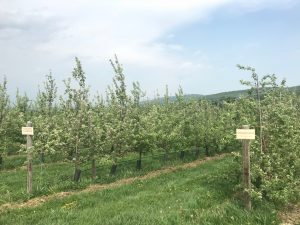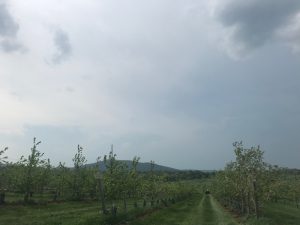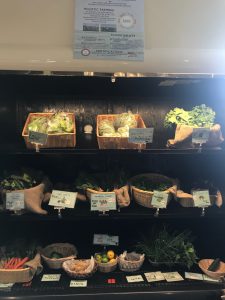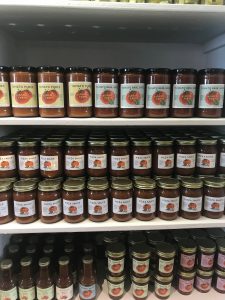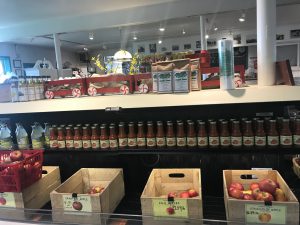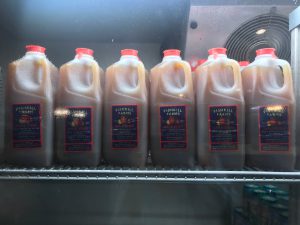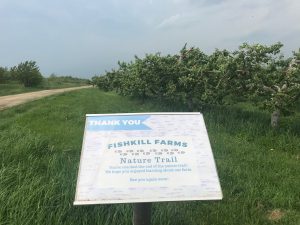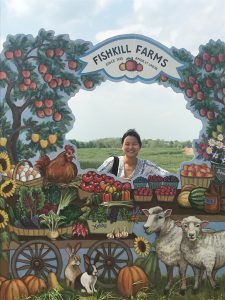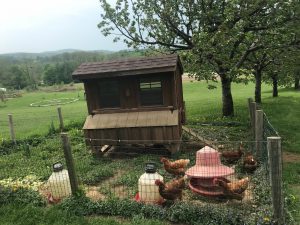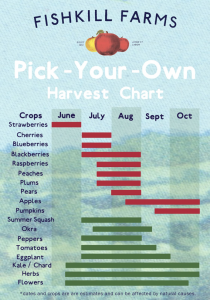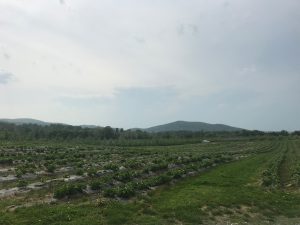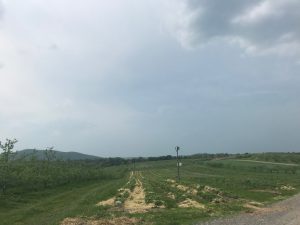Fishkill Farms is a 270 acre apple and vegetable farm in Fishkill. It started over 100 years ago in 1913 and has been under the Morgenthau family for three generations.
The farm prides itself in growing organic vegetables and fruit that is eco-certified. Furthermore, its produce can be found in the year-round farm store and farmer’s markets in the Hudson Valley and New York City.
The Fishkill Farms store consists of a diverse variety of products – from its own produce of apples, vegetables, potatoes, and eggs, to their value-added and processed fresh jams, butters, and sauces from their produce.
The farm store’s jams are quite pricey at $8 for a jar. They also have ready-to-eat products of apple cider donuts, pies, coffee, hot chocolate and Zoe’s Ice Cream (!!). According to the farm store salesperson, Fishkill Farms sends its products to another place for processing, but it intends on creating a processing site on the farm itself.
The farm store is also host to other local brands and products such as candles, soaps, seeds, ciders, cookbooks, and even dog treats. Most of these are household or farming-related items and attune to the overall good-food-good-home family atmosphere. The salesperson mentioned that people from New York City often visit, and perhaps they bring these products home as souvenirs or gifts.
The farm store is not the only evidence of the family-friendly attractive ambience Fishkill Farms wants to create. Outside the store, there are patios, plenty of picnic bench seating in various areas, a nature trail, and a chicken coop with a well-built homey structure for the chickens. The patio looks out onto the landscape of the farm, stretched onto hills amongst the background of the green and mountainous Hudson Valley. A grill and donut stall outside near the entrance add to the multi-purpose diversity of the farm to attract customers to not only buy its produce for household use, but also to sit down, relax, and enjoy food. Additionally, the farm has a cut-out frame for people to take photos in front of the landscape; the frame is adorned with drawings of fresh produce, farm animals, and apple trees, reminding visitors of the bounty the farm possesses.
After talking to one of the salespeople at the farm store, she mentioned that while their CSA programs help to provide revenue during the winter months, it is the pick-your-own programs that have helped Fishkill Farms grow to what it has become. This program allows visitors to have freedom to select their own fresh produce from June to October straight from the farm. Fishkill Farms has a poster to show visitors when is the best time to pick seasonally fresh fruits and/or vegetables.
Along with that, the farm has ongoing events related to their food, such as jamming strawberries (on June 16th), or even lending its space for weddings, birthdays, or company retreats. An educational aspect is also included by allowing students to visit for field trips or work with the staff on the farm.
Overall, it seems that Fishkill Farms not only has a great structure in maintaining its agricultural products to be fresh, organic, and environmentally-sustainable, but also markets their farm as a go-to venue, especially for a short day to experience a nature while enjoying fresh food.
